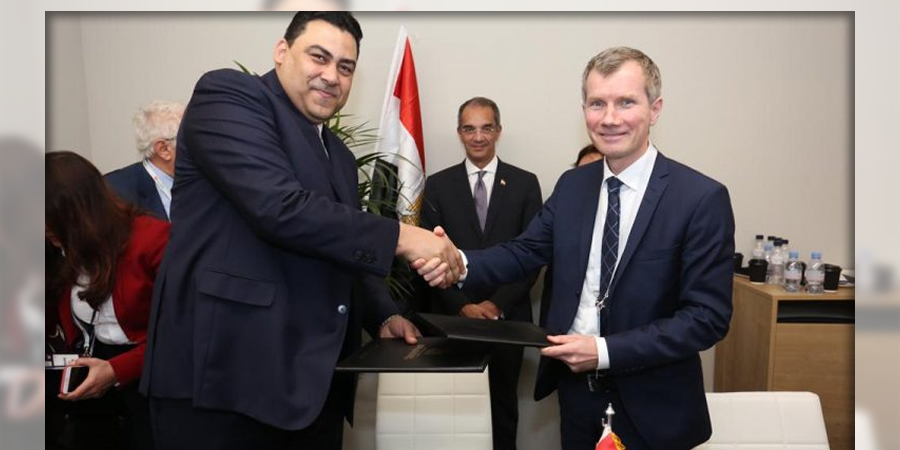Telecom Egypt and Ericsson have announced their collaboration at the Mobile World Congress 2019 on the upgrade of Telecom Egypt’s Cloud Core Network and the deployment of Artificial intelligence.
Telecom Egypt and Ericsson completed the successful deployment of Artificial Intelligence (AI) to its full-stack telco cloud infrastructure. The objective is to operate telco cloud environment intelligently and efficiently to enable cloud Automation and orchestration.
The telecom industry is moving into cloud automation especially with introduction of Cloud Native in 5G. Artificial Intelligence assets provide an efficient method for cloud visualization with ability to monitor internal traffic between NFVI layers, in addition to providing a fast way to identify faults and generate suggestions for resolution. A key benefit in the case of cloud is that the software is divided into smaller components. This means Telecom Egypt can be selective about what it chooses to upgrade in terms of software and manage these upgrades more easily on a live network with minimal disruption.
The two companies will now begin to onboard other services to address further market segments and opportunities, while ensuring business continuity management and automation process evolution of live solutions.
On another note, the two companies announced as well the upgrade of Telecom Egypt’s Cloud Core Network to be 5G ready. Telecom Egypt had gone live in September 2017 with Ericsson virtual Evolved Packet Core deployed on Ericsson’s proven Network Functions Virtualization infrastructure (NFVI). The solution is prepared for 5G and enables Telecom Egypt to improve speed, efficiency, and agility both for operations of current business and when addressing new opportunities.
The introduction of 5G is expected to result in many new services for consumers and enterprises, typically related to the Internet of Things. Using Ericsson’s solution Telecom Egypt will be able to scale more easily the network differently for various services, as well as bring innovative services to market faster in response to changing consumer and enterprise demands.
Ericsson has delivered a wide range of its market leading telecom applications including IP Multimedia Subsystem (IMS), Unified Data Consolidation (UDC), Signaling Routing (DSC/IPSTP), a complete virtual Evolved Packet Core (vEPC) and virtual Service-Aware Policy Controller. The applications will be managed by the Ericsson Network Manager (ENM) while Ericsson Orchestrator and OpenStack based Ericsson Cloud Execution Environment are key components of the NFVi solution.
Ericsson’s system-verified NFVI solution follows ETSI architectural principles and consists of software and hardware products as well support and system integration services forming a pre-integrated solution for telecom operators. Live deployment of Ericsson NFVI signifies an important step for Telecom Egypt to transform its network in light of the digital transformation that is taking place in the Middle East.
Together with the complete Ericsson virtual EPC and Policy control applications, including continuous delivery and deployment of software, it is serving millions of users with high-capacity mobile broadband, IoT and VoLTE as well as Wi-Fi calling services ready for launch today. Efficient rollout of new revenue-earning services is critical in an increasingly network-connected world.










